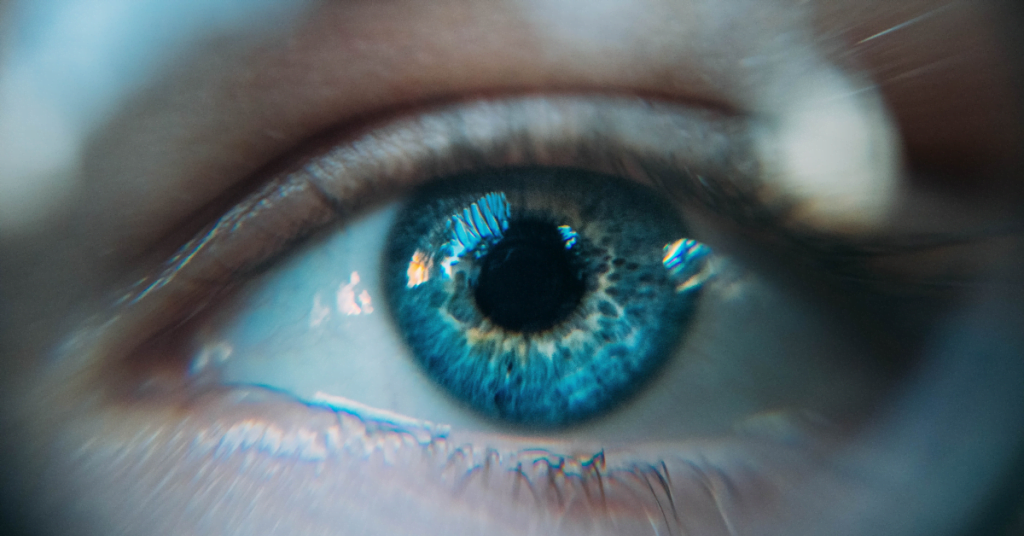The Rise of AI Glasses in 2024: A Blurrier Future or Crystal Clear Vision?

In 2024, AI glasses are set to revolutionize human-computer interaction, reshaping the way we see, interact with, and experience the world around us. Both early stumbles and groundbreaking leaps have marked the journey of AI glasses. Once clunky and tech-heavy, Google Glass laid the groundwork for the generation of AI glasses we are witnessing today.
Our smartphones have become extensions of ourselves, serving as cameras, maps, encyclopedias, and social calendars. However, they have become extensions of ourselves, providing information and connections that can be projected effortlessly before our eyes. AI glasses offer a seamless metamorphosis of smartphone functionalities onto a heads-up display, freeing our hands and refocusing our attention on the world around us.
The future of AI glasses promises a world where information seamlessly blends with experience, where the digital becomes an extension of our perception, not a distraction from it. As we explore the potential of these wearable wonders, we will see even more mind-bending possibilities, blurring the line between reality and augmentation beyond recognition. As we continue to explore the potential of AI glasses, we will continue to explore their impact on everything from how we navigate the world to how we connect and ourselves.
The AI Revolution Takes Eye-Sight: Unlocking the Potential

AI is ready to revolutionize the world by transforming reality and transforming our interactions with the world.
Augmented Reality: Seeing Beyond the Real
The world of a bustling city can be transformed into an interactive map, allowing users to navigate through the city effortlessly. This map offers real-time information, with landmarks whispering their histories, restaurant reviews materializing, and foreign languages translating themselves on the fly. This immersive experience allows users to experience the world like never before.
Information Overlays: Knowledge at a Glance
AI technology has revolutionized various aspects of life, from assisting in research to enhancing cooking. It has transformed knowledge from a distant digital abstraction to an immediate, contextual extension of vision. AI glasses now allow users to explore historical landmarks, cook recipes, and learn from their surroundings, making it a more immersive experience.
Enhanced Entertainment: Gaming and Beyond
AI glasses are revolutionizing the way we interact with and experience the world around us. They can transform our living room into a dynamic playground, allowing us to experience virtual pets, mythical creatures, and live concerts and sporting events. These glasses also enable collaboration on 3D models and virtual classrooms from anywhere in the world. The possibilities are endless, and they are poised to redefine how we see, interact, and experience the world around us. As we explore the challenges and ethical considerations of this transformative technology, we can witness how AI glasses can blur the line between reality and augmentation.
AI Assistants on Your Face: Always a Whisper Away

AI glasses offer discreet, always-on assistance in everyday life, resembling the trusted sidekick in spy movies. These digital companions live on your face, anticipating your needs and seamlessly integrating into your interactions, eliminating the need for fumbling with your phone or shouting commands.
Hands-Free Communication: Talking is Believing
AI technology is revolutionizing communication by enabling hands-free tasks like dictating emails, making clear calls, and translating conversations in real time. AI glasses break down communication barriers, allowing users to focus on the real world while a digital assistant handles the rest, enhancing multitasking and staying connected.
Proactive Efficiency: AI Anticipates Your Needs
AI glasses are revolutionizing the way we interact with technology. They offer proactive solutions, anticipating our actions and streamlining our daily lives. They can provide smart reminders, real-time to-do lists, and even traffic alerts, ensuring a seamless and efficient experience.
Personalized Well-Being: Your Health on Your Eyelashes
AI glasses are revolutionizing the way we interact with the world. They offer discreet monitoring of vital signs, alerts for posture slumps, and gentle reminders to take medication. These glasses are not just tech accessories; they become integral parts of our daily lives, providing communication freedom, efficiency, and personalized healthcare. As we explore the challenges and ethical considerations of AI, we can witness how these glasses can shape a future where we interact more naturally and efficiently with the world.
Concerns and Challenges: Through the Glass, Darkly
AI glasses offer groundbreaking technology, but they also present ethical challenges and must be used responsibly to ensure a future where augmented reality empowers rather than exploits.
Privacy & Security: Who’s Watching Now?
Privacy concerns are heightened by the use of discreet cameras in our augmented future, creating a dystopian image of surveillance. The question of who owns the data collected and how it is stored and secured is a pressing concern, necessitating robust regulations and ethical frameworks to prevent mass surveillance.
Ethical Considerations: Augmenting Humanity or Replacing It?
The promise of AI technology offers effortless communication and enhanced intelligence, but it raises concerns about potential digital divides and the impact on critical thinking skills. The constant information overload and assistance may also affect our attention spans and perceptions. It’s crucial to carefully consider these issues before rushing into an augmented future, as they could potentially exacerbate existing inequalities and alter our understanding of human nature.
Digital Divide: Can Everyone See Clearly?
AI glasses pose a significant threat to the digital divide, potentially exacerbating existing social and economic inequalities. To ensure equitable access, ethical considerations must be taken into account. This includes developing affordable alternatives and subsidized programs to prevent AI glasses from becoming a symbol of the digital divide. By addressing these challenges through open dialogue, responsible development, and ethical considerations, we can create a more equitable, informed, and connected future for all humanity. The choice lies with us, as technology is a tool, and we must decide how to use it to create a more equitable future.
Looking Forward: What’s on the Horizon for AI Glasses?
AI glasses are transforming the way we perceive, interact, and experience the world, with their potential to blur the lines between reality and augmentation, as they continue to advance in their development and advancement.
Merging Worlds: Blurring the Lines Between Physical and Digital
AI technology is revolutionizing everyday experiences by blending digital and physical realms. It can project menus onto tables, tailoring to dietary preferences, and overlay clothes on users’ images in real-time, eliminating the need for endless fitting rooms.
The Brain-Computer Interface: Thinking in 3D
AI glasses have the potential to become brain-computer interfaces, allowing users to control objects, navigate virtual landscapes, and collaborate on projects in real time with remote colleagues. Research into brain-computer interfaces is booming, and AI glasses may unlock its mind-bending potential, making it a promising tool in the future.
A Symbiotic Future: Humans and AI in Harmony
AI glasses aim to augment humans, creating a symbiotic relationship between humans and technology. They can anticipate needs, guide healthier choices, and provide real-time feedback for improved performance. The future of AI glasses is promising, merging physical and digital worlds and unlocking brain-computer interface power. However, it’s crucial to navigate responsibly, ethically, and inclusively, ensuring AI glasses become tools for empowerment rather than division, fostering harmony between humans and technology.
Conclusion: A New Chapter in Human Perception
AI glasses are transforming human perception by enhancing our understanding of the world and ourselves. They offer a new chapter in human perception, bridging the gap between physical and digital realms, allowing us to manipulate objects with thought, collaborate on projects in virtual landscapes, and experience art and entertainment in ways never before imagined. However, this transformative journey comes with challenges such as privacy concerns, the digital divide, and the erosion of critical thinking and human connection. As we embrace this new chapter in human perception, we must tread carefully, ensuring that AI glasses empower, not exploit and that we do so with responsibility, inclusivity, and a shared commitment to building a future where technology amplifies humanity’s strengths.
Here are 5 unique FAQs regarding AI glasses:
1. Are AI glasses safe for my eyes?
AI glasses with low-radiation displays are generally safe for most users, but reputable brands and usage guidelines are crucial to minimize potential risks.
2. How much will AI glasses cost?
AI glasses’ prices will fluctuate based on features and technological advancements, with early models expected to be more expensive, but expected to decrease as technology matures and competition increases.
3. When will AI glasses be widely available?
AI glasses, still in the early development stages, are expected to see a wider range of commercially available models in the coming years.
4. Who are the major players developing AI glasses?
AI, a rapidly growing field, is being developed by tech giants like Apple, Google, Facebook, and Microsoft, alongside startups and smaller companies.
5. Do AI glasses pose a threat to our privacy?
AI glasses pose privacy concerns due to their data-collecting capabilities. To protect user data, it’s essential to choose glasses with robust privacy policies and advocate for robust regulations. The future of AI glasses is promising, but responsible development, inclusive access, and ethical considerations are crucial. By doing so, AI glasses can become a force for good, enabling us to experience life in new ways.











